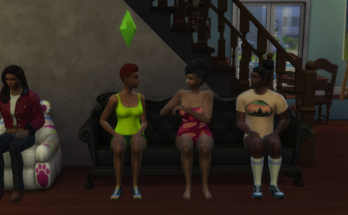My Fall Road Show has been a fruitful opportunity to play out, in person, many of the issues of concern here: namely my interest in performing and interrogating in form the unique and mutually-influencing strengths of on/off line community and interaction.
For instance, I have been quite interested in the intentional deployment of feeling in an (academic) room as one critical part of this live, human (or feminist) interaction that is almost impossible to replicate online.
However, given that academic talks are supposed to be devoid of feeling or even performativity (the norm is more like a human-fronted power-point or journal article), simply by being present and also interactive and emotional, I change the rules of engagement towards feminism’s commitments to the personal, communal, and emotional, as well as the intellectual.
As any good professor knows, to move the room in some sort of orchestrated way across ideas and through communally experienced feelings is one fine path towards education and community building. Now, let’s imagine the same things in reverse.
How to Rock Asian America pt. 1 of 3
Say, you don’t go to the scholarly conference (because it’s too expensive, or you want to make a more radical intervention) and you perform your presence instead online? What does that gesture tell us about the possibilities, strengths, and norms of the scholarly exchange of ideas, in rooms, between people? Wendy Hsu (who I met in person at Oxy last week) did just this last Friday![]() at the annual meetings of the Society of Ethnomusicologists.
at the annual meetings of the Society of Ethnomusicologists.
I also pulled off something of the same at the Digital Media and Learning Conference![]() in 2010.
in 2010.
The point of such efforts is not a lazy relay of an old form into a new one (slapping a book written on paper on to the internet, recording a talk that is twenty minutes and dumping it onto YouTube, although both of these efforts allow for greater access and the killing of far fewer trees) but rather the transformation of forms (and the media that hold them) in relation to scholarly findings about space, liveness, and new media.
Neither strictly a “video essay![]() ” (a form I teach in my Visual Research Methods course) nor a scholarly talk, efforts like Hsu’s at creative, performative, reflexive, politicized public scholarship about and in new media ask us to consider via form the “responsibilities, rights, visibility and consequence” of our scholarly labor while claiming (at least for Hsu) spaces outside of “Orientalism and racial melancholia” by engaging, aligning, and recording affect and absence, performance and presence.
” (a form I teach in my Visual Research Methods course) nor a scholarly talk, efforts like Hsu’s at creative, performative, reflexive, politicized public scholarship about and in new media ask us to consider via form the “responsibilities, rights, visibility and consequence” of our scholarly labor while claiming (at least for Hsu) spaces outside of “Orientalism and racial melancholia” by engaging, aligning, and recording affect and absence, performance and presence.


One Comment on “Scholar/Performers”
Comments are closed.